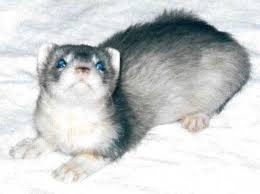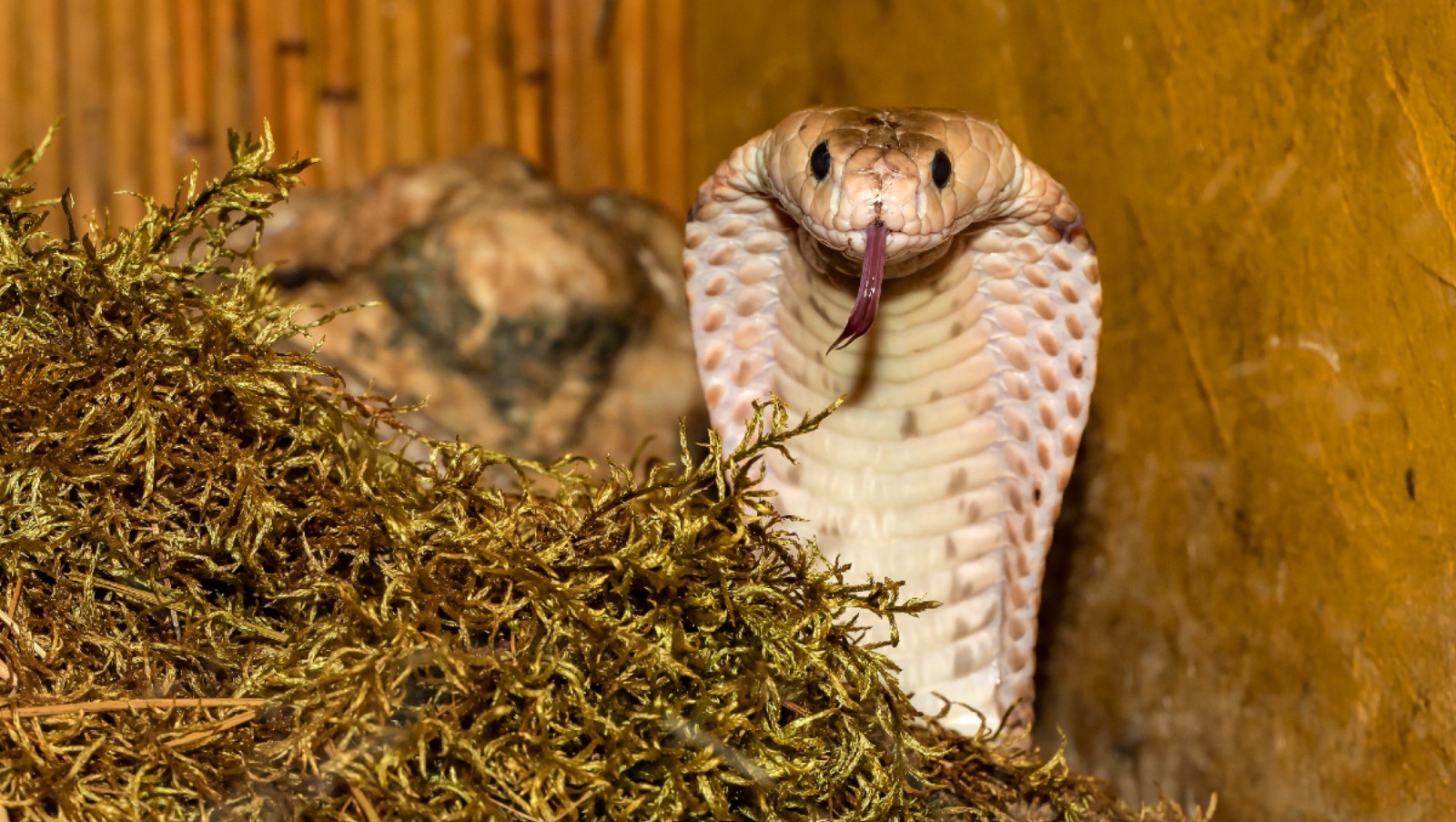
Silver Ferret
Conditions of detention
Silver Ferrets need a spacious cage with plenty of room for play and exploration. Their living environment should be enriched with toys and opportunities for mental stimulation.
Useful Fact: Silver Ferrets’ light-colored fur can make them more sensitive to dirt and stains, so maintaining a clean environment is important.
Nutrition and diet
They require a diet similar to other ferrets, rich in proteins and fats. High-quality commercial ferret food and fresh meat are ideal.
Useful Fact: A diet rich in omega-3 fatty acids can help maintain the shiny appearance of a Silver Ferret’s coat.
Health
Silver Ferrets can be prone to typical ferret health issues, such as adrenal gland disease and insulinoma. Regular veterinary care is essential.
Useful Fact: Silver Ferrets may be more prone to skin conditions due to their lighter fur, so regular health check-ups are important.
Grooming and care
Their light-colored fur may require more frequent grooming to keep it clean and free of stains. Regular brushing, nail trimming, and ear cleaning are essential.
Useful Fact: Frequent grooming can help keep a Silver Ferret’s coat looking its best and prevent skin issues.
Education and training
Silver Ferrets are intelligent and can be trained to use a litter box, walk on a leash, and perform tricks.
Useful Fact: Consistent training with positive reinforcement can help Silver Ferrets learn quickly and effectively.
Toys and entertainment
They enjoy a variety of toys, especially ones that allow them to burrow and explore. Interactive toys can help keep them mentally stimulated.
Useful Fact: Providing a mix of toys that engage different senses can keep Silver Ferrets entertained and happy.
Safety
As with other ferrets, it’s important to ensure their environment is free of hazards. Silver Ferrets are curious and may explore places that could be dangerous.
Useful Fact: Regularly ferret-proof your home to ensure a safe environment for your Silver Ferret.
Accessories
Silver Ferrets need a well-equipped living space with high-quality bedding, litter boxes, and toys that are easy to clean and maintain.
Useful Fact: Opt for accessories that are durable and easy to clean, especially since Silver Ferrets’ light fur can show dirt more easily.
Socialization
Silver Ferrets are social animals and thrive with regular interaction. Early socialization helps them develop into friendly, well-adjusted adults.
Useful Fact: Introducing Silver Ferrets to new environments and experiences early on can help them become more adaptable and less fearful.
Travel and Transportation
They should be transported in a secure, well-ventilated carrier. Familiarizing them with the carrier before travel can reduce stress.
Useful Fact: Adding familiar bedding to the carrier can make travel less stressful for your Silver Ferret.
Behavior and psychology
Silver Ferrets are playful, curious, and affectionate. They enjoy interacting with their owners and exploring their environment.
Useful Fact: Regular interaction and play are important for maintaining the mental and emotional health of Silver Ferrets.
Legal aspects
As with other ferrets, check local regulations before adopting a Silver Ferret to ensure compliance with local laws.
Useful Fact: Some regions have specific regulations regarding ferret ownership, so it’s important to research local laws.


